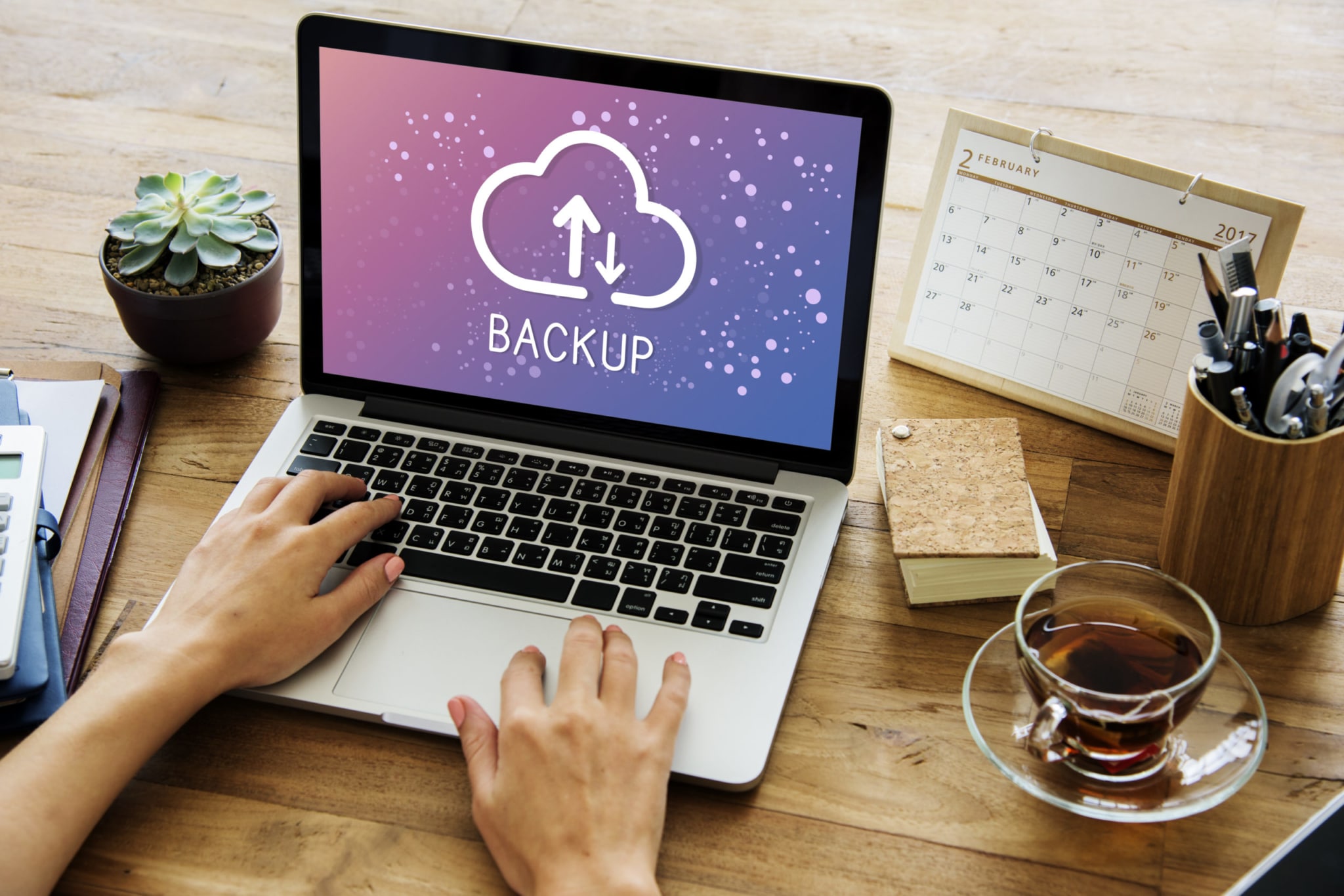
As coronavirus continues to evolve and spread, many companies and organizations are looking at long-term solutions for working from home. One of the most common questions that come up for small and medium businesses is, “how do I keep my files safe while my team works remotely?” Cloud storage and cloud backup solutions are appealing options because they are easy to use and, in some cases, free. These options are often confusing, but there are critical differences between the two.
In this article, we explore the differences between cloud storage and cloud backup. We also offer insights on the next steps for anyone interested in implementing one or both of these small business solutions.

Cloud Storage
Cloud storage makes accessing your files simple and easy to manage. All you need is an internet connection, and you can access your data from anywhere, at any time. Dropbox and Google Drive are a couple of examples of well-known cloud storage options out there.
Cloud storage is a useful tool and a great solution for:
- Teams that need to store files in a centralized location (Microsoft Teams and Microsoft SharePoint are great to secure options for this)
- Sharing and collaborating on files with others
Microsoft Teams and Microsoft SharePoint are great to secure options for this. Certain types of consumer cloud storage accounts can be problematic when it comes to security. Be sure to review your account details and security protocols with your IT partner to ensure that your data is secure.
As we have alluded to, cloud storage has its limitations. It’s not good for:
- Maintaining security and privacy
- Automatic, comprehensive backup of all files
- Ongoing tracking and monitoring for changes
- Consistent, uniform policy controls for backup
- HIPAA, FERPA, and GLBA compliance
It’s also easy to lose data if you are using cloud storage as a substitute for backup. Human error is the most common form of data loss; it’s too easy to accidentally delete files from the cloud, to overwrite them, or to simply forget to upload them.

Cloud Backup
Cloud backup is like cloud storage on an automated schedule with more stringent security measures. Between the two options, cloud backup is the best way to protect your business and personal data because these services are specifically engineered for long-term, on-going backup and security, not just storage.
To illustrate why this is the better option, security-wise, we will explore the most commonly-asked questions about cloud backup.
How does cloud backup work?
Cloud backup utilizes automation to regularly backup all files on a device. This process does not rely on a staffer’s calendar reminder, passwords on post-it notes, or for users to manually drag and drop files or upload them to the cloud. It works in the background, monitoring for changes along the way.
Can cloud backup be hacked?
When it comes to hacking, sloppy password security is the main culprit for breaches. This becomes a problem in backup programs that are manually implemented instead of automated like cloud backup programs. To keep your data secure, it is important to use a cloud backup service that encrypts files before uploading to the cloud and sending them through a secure tunnel using advanced encryption technology. There are two concepts at play here, “encryption-in-transit” (securing the transmission of data) and “encryption-at-rest” (securing stored data). Both services will upload data over a secure tunnel called SSL or TLS. Not all “Cloud Storage” encrypts at rest, but all “cloud backup” should allow or require it.

Why is cloud backup important?
Recovery and versioning are the two most useful features of cloud backup. If you have a system crash, through recovery you can log in to your cloud backup service and restore data to your replacement hardware with minimal downtime. Also with this service, earlier versions of files are stored. This comes in handy for those times when you accidentally overwrite a document.
Which cloud backup is the best?
At AccountabilIT, we offer our customers several types of storage and backup solutions for small and medium businesses. Would your organization benefit from implementing one or both of these solutions? We can help you identify the solutions that are a fit for your organization and compliant for your industry, including HIPAA compliance requirements. We would love to help your organization get set up and with your ongoing backup and support needs. Contact us to learn more.
Additional Resources
We hope this article was helpful and that you are taking the right steps to keep your files and data safely secured. For more cloud management and security resources, check out our cloud migration and management services.




